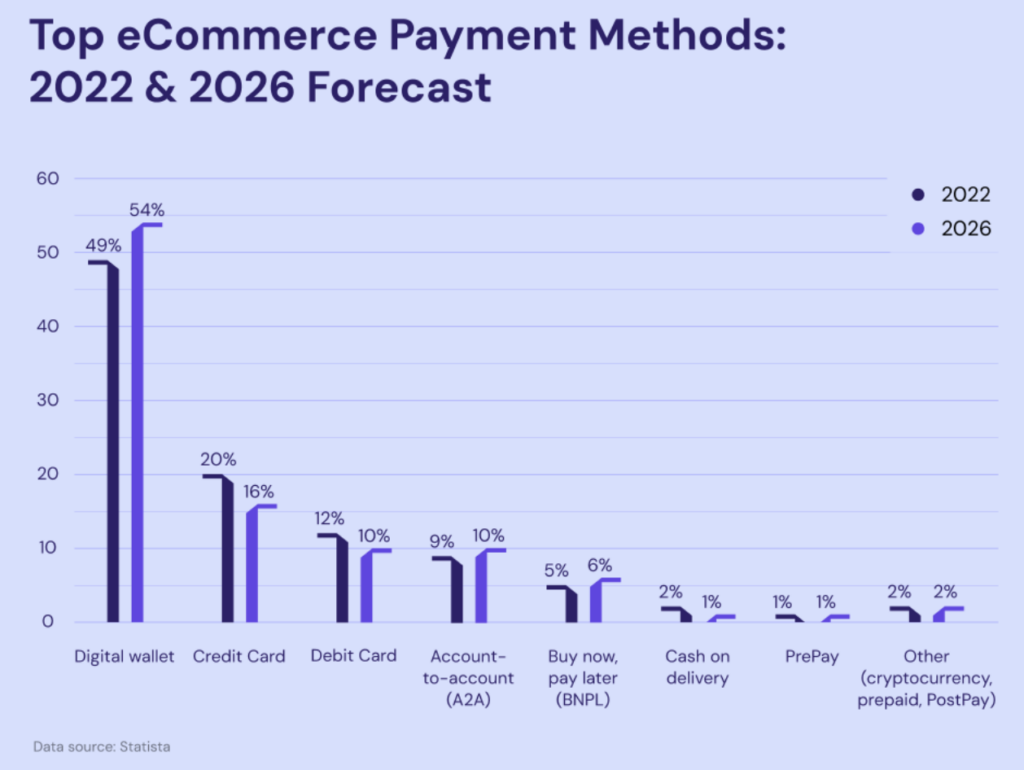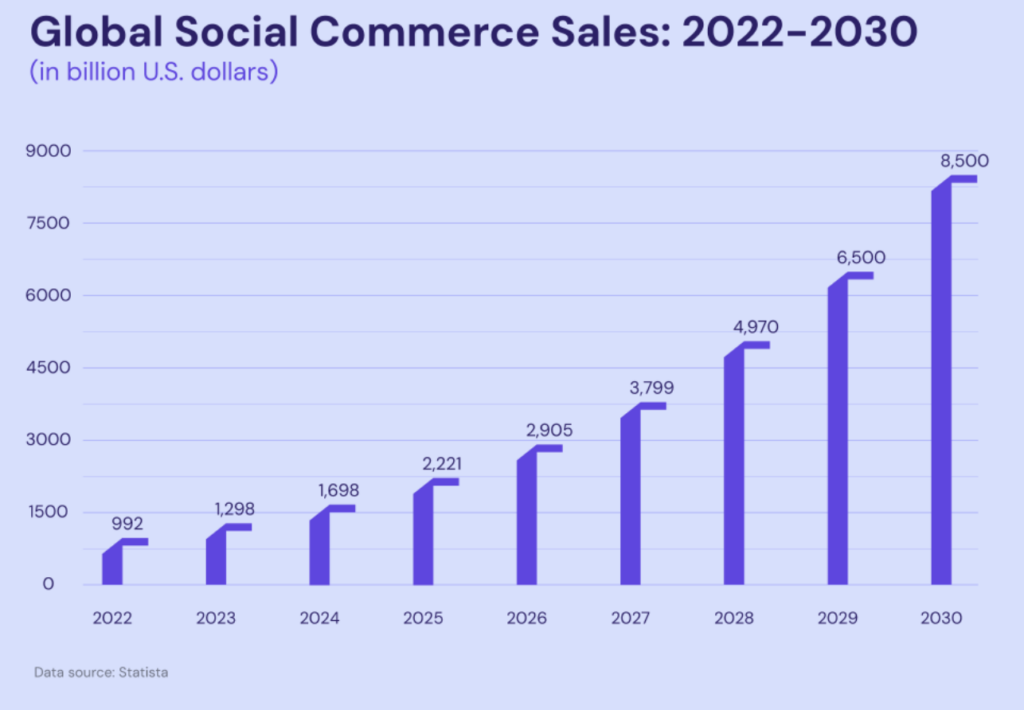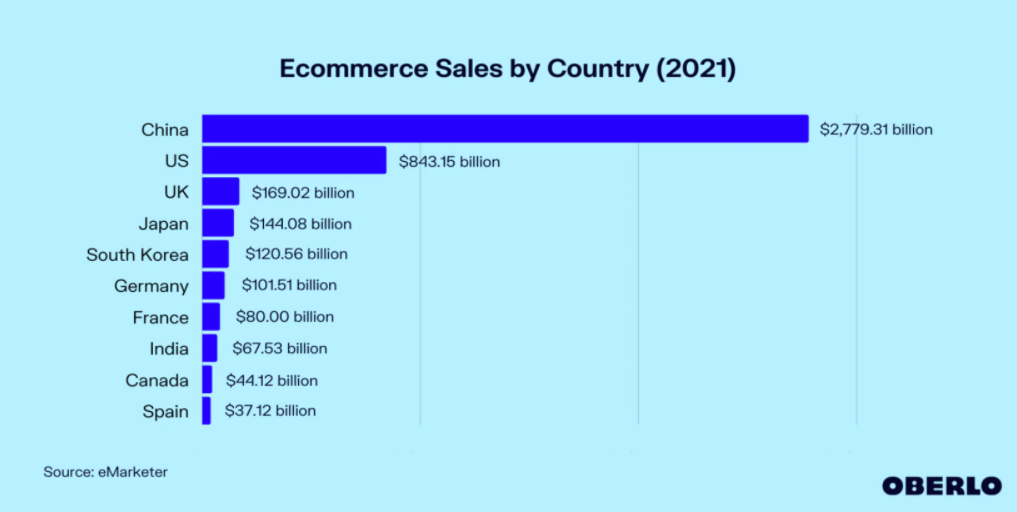Artificial Intelligence (AI) has become a game-changer in the e-commerce sector, driving innovation and enhancing operational efficiency. From personalised shopping experiences to efficient inventory management, AI technologies are transforming how businesses operate and engage with customers.
AI-powered tools and algorithms analyse vast amounts of data to provide actionable insights, automate processes, and create a more seamless shopping experience.
AI in ecommerce offers a competitive edge for entrepreneurs and startups. AI can help small businesses scale rapidly, optimise their resources, and deliver personalised experiences that can lead to increased customer loyalty and higher sales.
AI-driven Personalisation: AI in Ecommerce
Product Recommendations
- Personalised Product Suggestions
AI algorithms analyse user behaviour, preferences, and purchase history to provide personalised product recommendations. These suggestions enhance the shopping experience as customers can view items they are more likely to be interested in, leading to higher conversion rates and customer satisfaction.
- Cross-Selling and Upselling Strategies
AI-driven recommendation systems can also identify opportunities for cross-selling and upselling. By suggesting complementary products or higher-end alternatives, businesses can increase the average order value and maximise revenue.
Dynamic Pricing
- Real-Time Price Adjustments
AI-powered dynamic pricing models adjust prices in real-time based on various factors such as demand, competition, and inventory levels. This ensures that businesses remain competitive while maximising profits.
- Competitive Pricing Analysis
AI tools continuously monitor competitors’ prices, allowing businesses to adjust their pricing strategies accordingly. This helps in maintaining a competitive edge in the market and attracting price-sensitive customers.
Customer Segmentation
- Tailored Marketing Campaigns
AI-driven customer segmentation divides the customer base into distinct groups based on behaviour, preferences, and demographics. This enables businesses to create tailored marketing campaigns that resonate with specific segments, improving engagement and conversion rates.
- Behavioural Analysis for Better Targeting
By analysing customer behaviour, AI in ecommerce can identify patterns and trends that inform better targeting strategies. This ensures that marketing efforts are directed towards the right audience, increasing the likelihood of successful campaigns.
AI-powered Customer Service
Chatbots and Virtual Assistants
AI chatbots and virtual assistants provide round-the-clock customer support, addressing queries and issues in real-time. This improves customer satisfaction and reduces the burden on human support teams.
- Handling Frequently Asked Questions
Chatbots efficiently handle Frequently Asked Questions, providing instant responses and freeing up human agents to tackle more complex issues. This leads to quicker resolution times and enhanced customer experiences.
Sentiment Analysis
- Understanding Customer Feedback
AI-driven sentiment analysis tools evaluate customer feedback from reviews, social media, and surveys to understand customer sentiments. With this businesses can identify areas of improvement and address customer concerns.
- Improving Customer Satisfaction
By analysing customer sentiments, businesses can make data-driven decisions to enhance products and services, leading to improved customer satisfaction and loyalty.
AI in Inventory Management
Demand Forecasting
AI algorithms can analyse historical data, market conditions, and seasonal variations to predict sales trends. This helps businesses anticipate demand and plan inventory accordingly, reducing the risk of stock-outs or overstocking.
With accurate demand forecasts, businesses can optimise stock levels, ensuring that popular items are always available while minimising excess inventory to help save costs and increase cash flow.
Supply Chain Optimisation
- Reducing Operational Costs
AI in ecommerce can streamline supply chain operations by identifying inefficiencies and suggesting improvements. This helps in reducing operational costs and ensuring a smooth flow of goods from suppliers to customers.
- Enhancing Delivery Efficiency
AI-powered logistics solutions optimise delivery routes and schedules, ensuring timely and cost-effective deliveries. This improves customer satisfaction and reduces shipping costs.
Fraud Detection and Security
Payment Fraud Prevention
- Identifying Suspicious Transactions
AI systems monitor transactions in real-time, identifying patterns indicative of fraudulent activities. This enables businesses to flag and investigate suspicious transactions before they result in financial loss.
- Enhancing Payment Security
AI in ecommerce enhances payment security by implementing advanced authentication methods and detecting anomalies that may indicate fraud. This protects businesses and customers from financial risks.
Account Protection
- Detecting Unauthorised Access
AI algorithms detect unauthorised access attempts by analysing login patterns and behaviours. This helps in preventing account takeovers and safeguarding sensitive customer information.
- Safeguarding Customer Data
AI-driven security systems continuously monitor for potential threats, ensuring that customer data is protected from breaches and cyber-attacks. This builds customer trust and complies with data protection regulations.

AI for Enhanced User Experience
Visual Search
- Improving Product Discoverability
Visual search technology allows customers to upload images or use their camera to find products online. AI algorithms analyse the images and identify similar items, enhancing product discoverability. This feature is particularly useful for fashion and home decor, where customers might see something they like but don’t know how to describe it in words.
- Engaging User Interactions
Visual search creates a more engaging and interactive shopping experience. By enabling customers to search for products using images, businesses can cater to the growing preference for visual content and improve user engagement. This technology also reduces the friction in the shopping journey, making it easier for customers to find exactly what they’re looking for.
Voice Commerce
- Facilitating Voice-Activated Purchases
Voice commerce leverages AI in ecommerce so that customers can make purchases using voice commands. With the increasing popularity of smart speakers and voice assistants, this technology offers a hands-free, convenient shopping experience. Businesses can integrate voice commerce capabilities into their platforms, enabling customers to search for products, place orders, and track shipments using their voice.
- Integration with Smart Assistants
Integrating with smart assistants like Amazon Alexa, Google Assistant, and Apple Siri can further enhance the voice commerce experience. These integrations allow customers to interact with e-commerce platforms through their smart devices, making shopping more accessible and efficient. Voice commerce can also support personalised recommendations and reminders, improving customer satisfaction and loyalty.

Case Studies and Success Stories
Successful AI Implementation Examples
Numerous e-commerce companies have successfully implemented AI in ecommerce to enhance their operations. For instance, Amazon uses AI-driven recommendation systems to personalise shopping experiences, resulting in increased sales and customer satisfaction. Similarly, Sephora leverages AI for visual search and virtual try-ons, allowing customers to find and test products digitally, leading to higher engagement and conversion rates.
Challenges and Considerations
Implementation of AI in ecommerce offers several benefits, but there are challenges to boot. Businesses need to consider the cost of AI technology, the need for skilled personnel, and the integration with existing systems. So also, customer information need to be protected keeping data privacy and security concerns in mind. By understanding these challenges, businesses can better prepare for AI adoption and maximise its potential benefits.
Data Privacy and Security
- Ensuring Compliance with Regulations
AI systems in e-commerce must comply with data protection regulations like GDPR, CCPA, and others. Businesses need to ensure that their AI solutions are designed to handle customer data responsibly, with robust data governance policies in place. Legal repercussions can be avoided via compliance to regulations which also builds customer trust.
- Protecting Customer Information
Protecting customer information is paramount in AI implementations, hence novel security measure like encryption, secure data storage, and regular security audits must be executed. AI can also detect fraudulent activities and prevent data breaches, enhancing security.
Integration with Existing Systems
- Overcoming Technical Barriers
Integrating AI with existing systems can be challenging due to technical barriers such as compatibility issues and data silos. Businesses need to invest in scalable AI solutions that can seamlessly integrate with their current infrastructure. Collaborating with AI vendors and experts can also help overcome these challenges.
- Ensuring Seamless Operations
Ensuring seamless operations during AI integration involves thorough planning and testing. Businesses should conduct pilot tests to identify potential issues and make necessary adjustments. Training employees on new AI tools and processes is also crucial for smooth adoption and operation.

Future Trends and Innovations
Emerging AI Technologies in E-commerce
- Predictive Analytics and Beyond
Predictive analytics is one of the emerging AI technologies that can revolutionise e-commerce. By analysing historical data and identifying patterns, predictive analytics can forecast future trends, helping businesses make informed decisions. Beyond predictive analytics, technologies like augmented reality (AR), virtual reality (VR), and AI-driven content creation are set to transform the e-commerce landscape.
- The Role of AI in the Future of Retail
AI will continue to play a significant role in the future of retail, driving innovations that enhance customer experiences and streamline operations. From personalised shopping journeys to automated customer service, AI will enable businesses to meet the evolving demands of consumers.
Conclusion: AI In Ecommerce
The e-commerce industry is undergoing revival as AI presents potent tools for enhancing user experiences, optimising operations, and driving growth. For entrepreneurs, businesses, and startups, embracing AI can provide a competitive edge, enabling them to deliver personalised, efficient, and secure shopping experiences.
By staying informed about emerging AI trends and addressing implementation challenges, businesses can harness the full potential of AI to succeed in the dynamic e-commerce landscape.
Startups or entrepreneurs looking to launch a multi-vendor ecommerce software solution will find the solution provided by Appscrip right up their alley. Get in touch to know more.

After an Engineering degree and a Diploma in Management I devoted 16+ years working in the automotive industry. My innate skill and extreme passion in writing, encouraged me to adopt it up as a profession. I have been writing for more than 10+ years in the software industry. The 400+ blogs I published are informative, exhaustive and interesting to a professional and causal reader.


